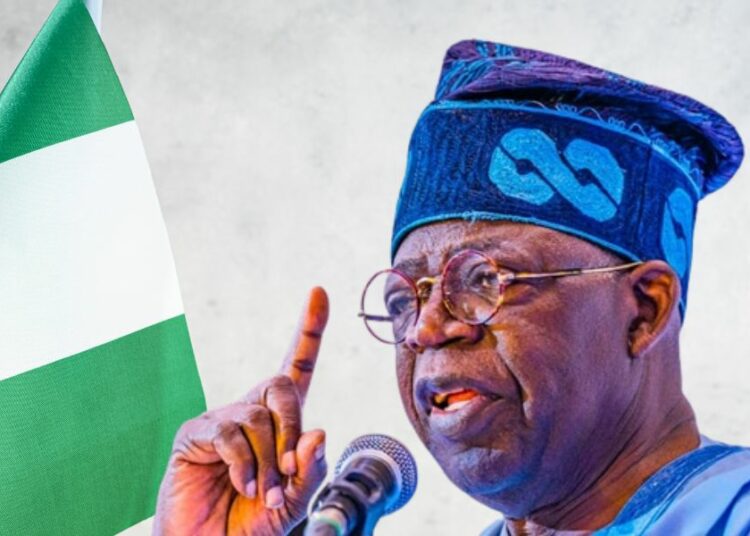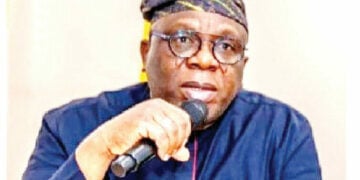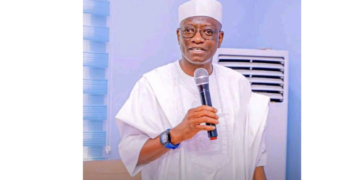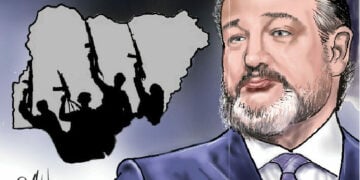It was great that President Bola Ahmed Tinubu (PBAT) finally chose to speak to Nigerians. Like his predecessor, President Muhammadu Buhari (PMB), he is lacking in the critical duty of speaking to Nigerians, including through press dialogues. On this occasion, a much earlier address could have doused some tension. “Speak to Nigerians” as I used here, makes a lot of difference compared to what we eventually got. However, after listening to the Presidential Address to the nation at 7 am, on Sunday, August 4, 2024, I concluded that it was a waste of my time.
The presidential speech was leaked the day before and was shared on social media platforms, including X and WhatsApp. I thought it was a fake news like the earlier contrite speech that I knew could not be from a PBAT who looks down on us all as he does what he wants without caring about due diligence procedures in a good polity. Or how do we explain his following the President Muhammadu Buhari’s style of disappearing into Europe on private visits with the Nigerian jet without the constitutionally expected processes. Or even the opaque contracts of his administration on many aspects of the Renewed Hope agenda.
So, to listen to the speech I had read all over again was very boring. I was used to speeches being given in advance to media houses but under an embargo to use only after the delivery. I had thought the Special Advisers would have restructured the same speech, but a friend told me the leak was part of a communication strategy. These little acts of serial leaks of important information and documents appearing ingenious robs the government of the trust of the governed.
For me, the speech was simple. PBAT chose to reaffirm to us that he is/was very right. He made no mistakes that needed corrections. Only ill-intentioned miscreants are the problem because all will be well in the long run, notwithstanding Geoff Mann’s book with the title to the effect that “in the long run, we are all dead”.
For PBAT, corruption is a mere leakage in Nigeria. Furthermore, there’s nothing to worry about on profligacy, whether it is with respect to the billions being spent to refurbish homes for the President and Vice-President or the acquisition of jet(s) etc, once fertilizers are being delivered to some farmers.
Some would have us believe that the President has no control over the National Assembly and could do nothing on budget padding. But he got the NASS to ratify the restoration of our old National Anthem within a week. So, the argument is that he could do nothing, even if only to call national attention to the problem in his address. Constituency projects whether the values run in billion or half a billion or 300 million naira depending on the s/elected officials’ ranking in the National Assembly are not of concern since the minimum wages of 70,000 naira had been signed and neither should we raise issues about the purchasing powers of the sum in comparison with the pre-PBAT’s time in office when it was 30,000 naira. Or official and private travels galore for all, including meetings planned for the US, UK, etc. These travels are apparently very necessary for the foreign direct investments that are announced to be trickling in and will soon start in a torrential flow to “stabilise” the Naira.
With his silence, it is suggestive that the number of Ministers “of” and Ministers “for” are yet to be at the optimum for a country of Nigeria’s size as we still need the Ministry of Renewed Hope.
The Address paid little attention, if at all, to the needs of the day that necessitated the s mass protest actions that got out of hand in some states of northern Nigeria. Removal of custom duties on medicine and foods are very welcomed only if they translate into trickling down to the ordinary Nigerians in need. The President repeated Mr. Wale Edun, the Minister of Finance, who had informed us of a presumed reduction in our debt service ratio. But this would be great if true, but it is yet to affect the cost of borrowing. Economists can help analyse what is actually happening as the PBAT government has joined the style of future sales of crude oil. This approach hides the exact quantum of our debt requiring interest payments.
Salutary was PBAT calling on Nigerians to demand from state and local governments on what Governors and Chairmen are doing with allocations to state and local governments. PBAT could do more by funding civil society organisations to boost demands of accountability at the other two tiers of government. It is a duty to ensure that federal funds are not just converted into dollars and stored into the Panama, Paradise and Pandora types of papers.
However, for me, the height of the speech that had lost originality since I read it on the previous day was the ‘Tricolour’ Red-Blue-White flag flowing along with the Green-White-Green. This sparked some inquisitiveness and as they say, we learn everyday. Three friends, including a respected former boss of mine, a lover of Nigeria born into another country, had engaged me with WhatsApp postings on the Tricolour flags especially as protesters in Kano held the Russian version and three young male Nigerians cried vociferously to President Vladimir Putin to intervene in Nigeria, claiming that we need his help.
There are protocol and diplomatic etiquette issues that guide flying flags of countries. While there are general principles, some countries have specific rules. For instance, when many flags are displayed, there are positioning rules that are stipulated and followed. Tends to be alphabetical order at UN meetings. When being hosted by a nation, different rules apply depending on guidance from state protocol authorities. In some cases, for some countries, there may be associated crimes with mistreating national flags.
Having the US and UK flags flying and not the Russian, Chinese, South African, Indian, etc., amounts to what could be interpreted as reinforcing colonial mentality. When a sovereign or a diplomat of another country is in attendance at a meeting, it may be in order to have the flag of such a sovereign or diplomat displayed.
In some international hotels, they abuse diplomatic protocol while hoisting flags of some nations without respect to any rules. Some hotels hoist presumably on the basis of the nationalities staying in the hotel on a particular day. Most countries would ignore the ignorance of hotels.
During the speech, I wondered about why a Tricolore was flying until I realised that PBAT’s flag was neither French since that is horizontal and not Russian since the order of the positions of the colours differed. His was Red, Blue and White, which an influencer friend told me represented the three arms of our military forces: Army, Airforce, and Navy over which PBAT is the Commander-in-Chief. PMB, in his own case, had used Army-Green instead of Red. Do we really need these flags at National Addresses? Do we not all know that our President is father of the nation and Commander-in-Chief? Are these colours meant to be diversionary communication strategy?
Knowing that the Tricolore did not amount to dual citizenship on the part of PBAT was a relief for me. However, this clarity leaves the analytical questions raised by my former boss unanswered. Is it that Kano based Nigerians are moving towards Russia? How would the West view this? Can PBAT afford such an embarrassment given his very clear orientation towards the West? I thought the symbolism of Russian flags among protesters in Kano may simply be the influence of a seeming revolutionary outburst of the Confederation of Mali, Burkina Faso and Niger Republics a.k.a., the Alliance of Sahel States (AES) that the empty bravado of PBAT led ECOWAS had pushed into embracing Russian forces thereby reinforcing what may be the dwindling relevance of ECOWAS in the world. The AES had wanted understanding neighbours’ assistance to resist the “continuation of colonisation” and insecurity in the Sahel as opposed to giving them lectures on civil rule deceptively tagged democracy.
My simplistic explanation of the influence of the AES on Nigerians in Kano may be a result of sympathy feelings of Kano residents towards brethren across artificial borders. During the tense days in Niger Republic, Sanusi Lamido Sanusi, as the Khalifa of the huge Tijanniya sect had received a tumultuous welcome in Niger Republic when respected Nigerian/ECOWAS delegations were given cold shoulders. This was long before the tense politicised traditional diarchy of two Emirs who are cousins over Kano, which may be contributing to the wild protestation and looting in Kano and beyond. Of course, untamed corruption depriving the young ones in northern Nigeria of appropriate socialisation for today’s productive world can only provide more violently hungry and angry youths. There can be no security and development in Nigeria until we have leadership types that are imbued with reduced greed that can organise our youths, for productive life.
The recommendations in my earlier message titled: “An Open Letter to President Tinubu on Avoiding Gen-Z’s Protests”, subsists in spite of the unfortunate and undesirable violent protests, that resulted in avoidable deaths, as well as the looting of public and private properties.
*Babafemi A. Badejo, author of a best-seller on politics in Kenya, was a former Deputy Special Representative of the UN Secretary-General for Somalia, and currently a Legal Practitioner and Professor of Political Science & International Relations, Chrisland University, Abeokuta. Nigeria.





